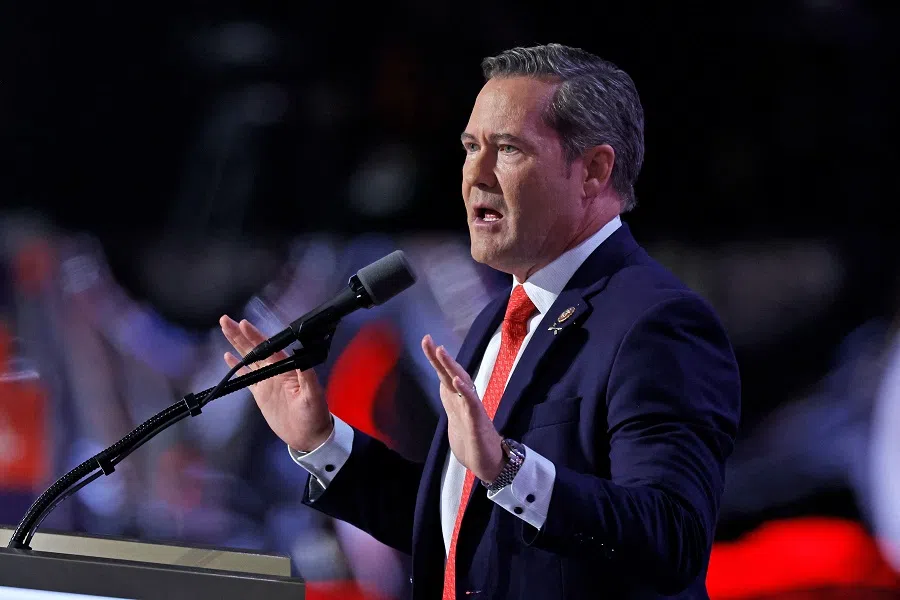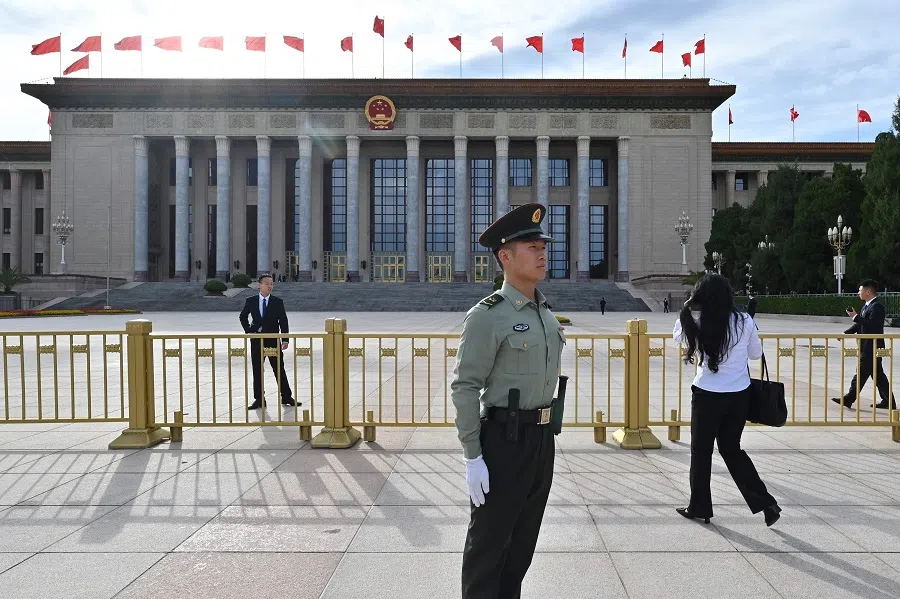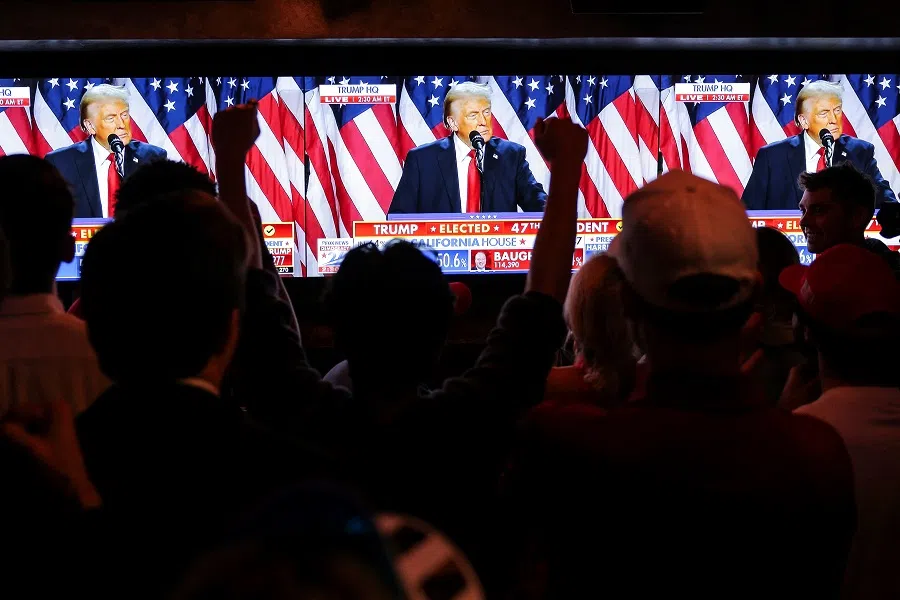Trump 2.0: A cabinet of China hawks?
All eyes are on President-elect Donald Trump’s cabinet members as China-US tensions run high amid strong anti-China sentiments among potential candidates such as Marco Rubio and Michael Waltz, says Lianhe Zaobao China news editor Yang Danxu.

After a strong victory in the US presidential election last week, Republican candidate Donald Trump is now looking to fill his cabinet. The latest news suggested that he would appoint Republican senator Marco Rubio from Florida as secretary of state and congressman Michael Waltz as US national security adviser.
Strong anti-China sentiments
Before these appointments become official, Trump could still change his mind. However, the emergence of Rubio and Waltz as potentials has quickly sparked debate. CNN has described Rubio and Waltz as staunch “China hawks”, and their potential appointments are a clear indication of how Trump’s strategy towards the rising superpower rivalry could develop.
Waltz is a member of the US’s House of Representatives House China Task Force, which is focused on Washington’s competition with Beijing. He once called for a boycott of the 2022 Beijing Winter Olympics and has repeatedly criticised China on issues such as Covid-19, Xinjiang and Hong Kong.
Just days before the US election, Waltz co-authored an article with former Pentagon strategist Matthew Kroenig, published in The Economist. They argued that the next president should bring the conflicts in Ukraine and the Middle East to a swift conclusion, and direct strategic attention to the more pressing issue of “countering the greater threat from the Chinese Communist Party”.
Rubio has been sanctioned by China at least twice.
Rubio is no stranger to China; the Republican senator is a leading anti-China figure in US Congress and is reportedly the most hawkish candidate on Trump’s shortlist for secretary of state.
Rubio was behind several China-related bills proposed in US Congress in recent years, including the Uyghur Human Rights Policy Act and the Hong Kong Human Rights and Democracy Act. He called for the closure of all Confucius Institutes in the US, claiming that China uses the institutes to expand the country’s political influence overseas. He also promoted several pro-Taiwan bills, such as the Taiwan Relations Reinforcement Act and the Taiwan Peace through Strength Act. Rubio has also pushed for investigations into TikTok and called for a ban on selling any technology or products to Huawei.

This young Republican has stood out among the new generation of congress members due to his distinct anti-China stance, which also rendered him a thorn in the side of Beijing.
Rubio has been sanctioned by China at least twice. In July 2020, in response to US actions on the Xinjiang issue, China announced reciprocal sanctions against a US institution and four individuals, with Rubio among them. In August 2020, after the US sanctioned Chinese government departments and Hong Kong officials over alleged undermining of Hong Kong’s autonomy, China announced counter-sanctions against US personnel, with Rubio again on the list.
Chinese media have previously labelled him as an “extremely anti-China politician”, a “leader of the anti-China vanguard” and the “most obsessive and radical anti-China figure within the Republican Party”. Now, this senator, whom Beijing thinks has a deeply flawed record, could become the next US secretary of state, overseeing US foreign policy.
A real issue in China-US relations is what happens to Beijing’s sanctions on Rubio if he becomes US secretary of state.
Impact of high-level sanctions
Some of my fellow peers lamented, “Isn’t this like when enemies come face to face and their eyes blaze with hatred? Even before the Trump administration begins to handle US-China relations, tensions are already running high.”
A real issue in China-US relations is what happens to Beijing’s sanctions on Rubio if he becomes US secretary of state. When China announced the sanctions, the official statement did not specify the exact measures, such as whether Rubio was banned from entering China. So far, there is no public information indicating that China has lifted the sanctions against him either. The impact of Rubio’s unique status as a sanctioned individual on China-US diplomacy remains uncertain.

There is precedence whereby high-level interactions between China and the US were constrained by sanctions. When former Chinese Defence Minister Li Shangfu was sanctioned by the US, it created an awkward situation for high-level military exchanges between the two countries. Even Li’s fall from grace did not clear the way for dialogue between the defence ministers from both sides.
Fortunately, however, based on Trump’s rhetoric on China during his campaign, any imminent clash between China and the US is expected to primarily occur in the trade sector. The role of the secretary of state may not be that crucial for the time being.
It is expected that aggressively suppressing China, containing its development, and widening the power disparity between the US and China will be the main themes of Trump’s China policy in his second presidency.
Both sides must compromise
Meanwhile, there are some who believe that while the appointment of a staunch China hawk is concerning for China-US relations, there may still be room to manoeuvre. One cannot solely rely on Rubio’s and Waltz’s congressional records to assess how they will handle the US’s relations with China — the US Congress itself is rife with anti-China sentiment.
Serving as a congress member and as a cabinet member are two different things. Once these politicians assume key government positions, even if they maintain a hardline hawkish stance, they will need to approach US-China relations from a more strategic perspective.
In fact, former US President Richard Nixon, who had the most significant impact on transforming US-China relations, was once known for his staunch anti-communist stance. Yet, he unexpectedly made a historic visit to China, ending a period of mutual isolation between the two countries.
Undoubtedly, Rubio and Waltz’s influence cannot be compared to Nixon’s, and it does not seem like the US is headed towards improving relations with China. It is expected that aggressively suppressing China, containing its development, and widening the power disparity between the US and China will be the main themes of Trump’s China policy in his second presidency.
It is possible that Trump just wants to deal a head-on blow at the first encounter, raising the stakes before even starting negotiations, so that he can bargain from a position of strength.

However, China remains an unavoidable topic, and the reality that the US will need to engage with China will not change. Regardless of who the secretary of state or national security adviser will be, they will have to consider the complexity of the bilateral relationship.
How will Beijing deal with this former thorn in its side? Although China is unlikely to lift sanctions without reason, if Washington shows goodwill, would Beijing be willing to take a step back and create opportunities for high-level communication between the two governments? Both sides will have to compromise on this issue.
It is possible that Trump just wants to deal a head-on blow at the first encounter, raising the stakes before even starting negotiations, so that he can bargain from a position of strength. How China will respond remains to be seen, but it is certain that China-US relations will be turbulent in the near future.
This article was first published in Lianhe Zaobao as “反华议员卢比奥要做美国国务卿了?”.





